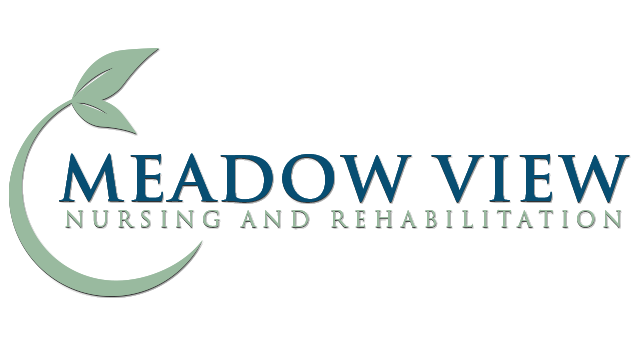Amphetamines Addiction Treatment Clinics Squire WV
Home
Best Amphetamines Addiction Treatment Clinics Squire WV Resources and Information Online
Amphetamines Addiction Treatment Clinics Squire WV
Maybe family therapy is important to you, or holistic therapies, such as yoga, art, music or equine therapy. To qualify for these types of programs, one must first and foremost possess a need for public assistance and be able to prove that there is a financial need as well. Furthermore, Marlatt stresses some decisions—referred to as apparently irrelevant decisions—may seem inconsequential to relapse, but may actually have downstream implications that place the user in a high-risk situation.[citation needed] For example: As a result of heavy traffic, a recovering alcoholic may decide one afternoon to exit the highway and travel on side roads. Individuals who have attended Christian rehab programs have said that the course was not only inspiring but also helped them lead a purposeful life. Naltrexone cuts relapse risk during the first 3 months by about 36%.[9] However, it is far less effective in helping patients maintain abstinence or retaining them in the drug-treatment system (retention rates average 12% at 90 days for naltrexone, average 57% at 90 days for buprenorphine, average 61% at 90 days for methadone).[9] Ibogaine is a hallucinogenic drug promoted by certain fringe groups to interrupt both physical dependence and psychological craving to a broad range or drugs including narcotics, stimulants, alcohol and nicotine.
Have they become isolated and withdrawn from loved ones? This is because drug addiction fits with the symptoms and description of what a disease is.
Even more Information About Butorphanol Detox Treatment Centers

Even more Info About Butorphanol Detox Treatment Centers Squire WV
Could you (and/or other close family members) help them out financially? The general intent is to enable the patient to confront substance dependence, if present, and cease substance abuse to avoid the psychological, legal, financial, social, and physical consequences that can be caused, especially by extreme abuse.
Here are Some More Resources on Inpatient Rehab Programs
Undo Undo DRUG ADDICTION HELP Retweeted CCHR Intâ€Verified account @CCHRInt Mar 9 More Bloomberg News—America's Next Big Drug Problem: Doctors and lawmakers need to take benzodiazepines seriously, before it's too late. When calling a drug helpline expect to go over the following: your drug-of-choice your drug use history (frequency, amount, total time using) basic education about addiction services options for length of treatment, cost, health insurance coverage What Happens After A Drug Hotline Call? Life is precious; now is the time to find the care that can save you from the throes of drug addiction. Cravings, withdrawal, and mental illness all contribute to the idea of powerlessness in drug addiction. “Smoking dope and smoking coke, you are rendered defenseless.
A lot more Resources For Inpatient Rehab Programs Squire WV
As drug abuse takes hold, you may miss or frequently be late for work or school, your job performance may progressively deteriorate, and you may start to neglect social or family responsibilities. In fact, nearly 1,500 individuals addicted to drugs die every week across the country. Counselors help individuals identifying behaviors and problems related to their addiction. Some short term programs may cost as little as $1200 for the entire stay (usually 2-3 months). Choosing to go to an inpatient treatment center is the first step toward regaining your life and living on your own terms. When you call this hotline, a staff member is waiting ready on the other side to attend to your situation via phone assistance. Substance abusers also sometimes use the gas as an inhalant. If you or someone you love is ready to check into an inpatient rehab center, please contact us now. Learn What You Can Do How to Choose an Inpatient Treatment Center Because every person who needs addiction treatment is different, there are also a variety of differences among treatment programs. If you’re worried that a friend or loved one might be abusing drugs, look for the following warning signs: Physical warning signs of drug abuse or addiction Bloodshot eyes, pupils larger or smaller than usual Changes in appetite or sleep patterns Sudden weight loss or weight gain Deterioration of physical appearance, personal grooming habits Unusual smells on breath, body, or clothing Tremors, slurred speech, or impaired coordination Behavioral warning signs of drug abuse or addiction Drop in attendance and performance at work or school Unexplained financial problems; borrowing or stealing Engaging in secretive or suspicious behaviors Sudden change in friends, favorite hangouts, and hobbies Frequently getting into trouble (fights, accidents, illegal activities) Psychological warning signs of drug abuse or addiction Unexplained change in personality or attitude Sudden mood swings, irritability, or angry outbursts Periods of unusual hyperactivity, agitation, or giddiness Lack of motivation; appears lethargic or "spaced out" Appears fearful, anxious, or paranoid Warning signs of commonly abused drugs Marijuana: Glassy, red eyes; loud talking, inappropriate laughter followed by sleepiness; loss of interest, motivation; weight gain or loss.
Click Here for More Information
Previous Next
You may also like:
Suboxone Rehab Treatment Program Dry Ridge KY
Lortab Addiction Clinics Mid Island NY
Pentobarbital Abuse Clinic Sandstone MN
Hycodan Rehab Facility Near Me Cohocton NY
Antabuse Abuse Program Englewood KS
Subutex Abuse Treatment Centers Lakeview OH
Vicodin Addiction Rehab Facilities Warner NH
Zydone Addiction Treatment Facility Ironia NJ
Church Rehab Lake Linden MI
Heroin Addiction And Recovery Piney Creek NC
Amphetamines Addiction Facility White Earth MN
Drug Rehab For Married Couples Spindale NC
What Is Inpatient Drug Rehab Like Chimayo NM
Marijuana Addiction Rehab Center Sparkill NY
Addiction Recovery Christian Book Normal IL
Pcp Addiction Detox Facility Platteville WI
Mescaline Rehab Clinic Hollis NY
Dextropropoxyphene Detox Treatment Clinics Faith SD
Diazepam Abuse Treatment Facilities Elgin NE
Methylphenidate Addiction Treatment Facility Headland AL